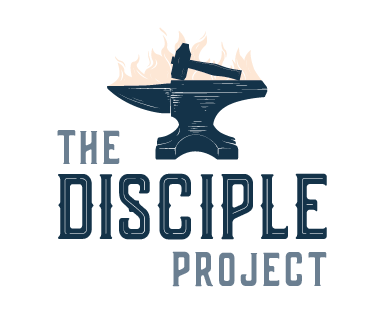This is the fifth and final post in my series on re-evaluating your youth ministry volunteers, and it may be the most important.
Often times a person will hide their health (all kinds) to keep their job. People want to keep their job so they’ll hide or mask the fact that there is something wrong so they won’t be fired, demoted, etc.
Think of football players. They know that there is a second and third string right behind them. They know that if they go down, someone could take their place. Commentators and the general public reward, with praise, this kind of sacrifice.
I remember Robert Griffin III playing one night. He was really injured on a play but coach Mike Shanahan put him back in. Everyone could see that Griffin was really injured, but out he went, only to get injured even further and probably shorted his career.
You or your volunteers might be in the same boat. It’s possible that they, in their minds, have a “powerful” position. It’s a role that gives them purpose and hope and if they were to lose it, it would crush them.
Now, there are various levels of “injuries” a football player can sustain and still play. Broken fingers, strained wrists, etc. None of those are optimum but guys are taught to “play through the pain.”
As believers we can and do sustain “injuries” and can still function. We are wounded healers. We have to deal with unhappy people, jerks who hurt our feelings with their opinions, and just plain mean people who do not like us. Youth Pastors have to shoulder on and get results, but we should do our volunteers one better.
We should offer our volunteers a no fear evaluation. Out evaluations should be a kindness, a check up to prevent any injuries or sickness.
Evaluations shouldn’t be solely performance reviews. If we are the leaders we are also the team doctors. We determine if a player can or should play if they are not 100%
The kinds of injuries I look for are Mental, Emotional and Spiritual.
Mental
I’m not a psychiatrist or psychologist but I still have to evaluate someone’s mental capacity to drive a bus, teach a lesson, etc. Mental capacity does not mean I am seeing if the person has a mental health issue but rather has the fluidity to perform in certain roles.
There are some leaders who lack a filter. They spout off whatever they want whenever they want to whoever they want. These kinds of leaders might be great for tasks at events, but not for a small group leader.
Emotional
People carry wounds in their hearts like many carry around scars on their body. People who are constantly bringing up how people have hurt them, slighted them, left hem out, etc. are not emotionally well. They haven’t dealt with the hurt and the pain they received.
Leaders are there to minister to kids, not rant on about their lives and how unfair life has been to them. People who are not emotionally well suck all the oxygen out of the room and make every thing about them through rehearsing how they received their injury.
Much like athletes who never got their shot at greatness because of such and such (think Kevin from This Is Us) they re-tell the stories of what could have been. They live in the past rather than the present.
Spiritual
Some wounds go deeper than our emotions and drip, like poison, into or spirits. These are the worst kinds of injuries. They are life debilitating because they tint how we look at life.
Spiritual wounds often look like bitterness, un-forgiveness, easily offended, unable to receive instruction, love, or discipline. These are the kinds of wounds, if left unattended, will sideline them from doing the kinds of ministry they would like to do.
We have to be prayed up and perceptive. Some youth workers see their goal as running a great youth program because they were hired to. Be that as it may, God asks us to, occasionally, play team doctor and evaluate those playing on our team, offer prayer, advice, support, etc. whatever we can to help our volunteers become the healthiest people they can be. Healthy people make great volunteers.
Although the football player doesn’t like when the team doctor tells them they cannot return to the game because of a concussion and they feel that the doctor is ruining their career, that doctor may be saving their life so he can have a life after football.
Listen, it’s only youth ministry, it’s not life. My role as believer supersedes my role as a Youth Pastor. If I have to sit someone out (including myself) and “the game” suffers, so be it, but I have to care more about that person’s well being than I care about how well the program is running.
We cannot fix or cure anyone, that’s Jesus’ job but we should always take stock of the mental, emotional, and spiritual well being of our team. Failure to do so means their will be a lot of “time outs” for injury and we’ll see our youth programs suffer and our kids not receiving the best care from healthy people.
Internally, with a small team or with your Pastor, evaluate those you lead with questions like,
Are they healthy enough to lead a small group?
Are they healthy enough to mentor someone else?
Are they healthy enough to preach?
While we’re at it, we should also put ourselves though the same kinds of injury protocols. After all, youth ministry isn’t life, is it?
